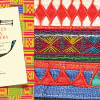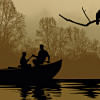Vivisection of a cat

Trigger warning: Animal abuse, violence
Our Ullash is quite the curious young boy, brimming with boundless energy and an insatiable thirst for discovery. We had always believed he was destined to become a great scientist, someone who would make groundbreaking contributions. Once, he caught hold of a cat and embarked on an experiment so peculiar, it left us speechless. And that wasn't the only time—his antics extended to countless other endeavours. If I were to recount just the cat episode in detail, you'd easily imagine the rest of his escapades. The cat was more than just a pet; it was part of our family. It had been with us since birth, growing up in this very house. With a quiet sense of duty, it took charge of the kitchen, ensuring no other feline dared to trespass while it stood guard. When Ullash decided to choose the cat for one of his experiments, our borobhabi, Ullash's mother, didn't raise a single objection. She simply said, "Why not? It's been with us for so long. If it proves useful, let it be. But make sure no harm comes to it."
Our elder brother, full of pride in Ullash's inventive streak, promptly hired a carpenter to craft a sturdy cage. He couldn't contain his delight, often bragging to his friends, "You know, our Ullash is always up to something! He's done this, he's done that!" And as his uncle, I'm no less guilty of spinning tales of his ingenuity.
The cat was placed in a cage, and what followed was nothing short of royal treatment for an entire month. As per Ullash's instructions, we dutifully fetched all manner of delicacies from the market. Lounging in comfort, the cat grew so large and imposing, it began to resemble a miniature tiger. Inside the cage, it roared and raged as though the jungle itself trembled at its might.
One day, Ullash gathered us all and said, "Do you believe now that the cat is the tiger's little brother?" We'd always entertained the notion, but now, staring at this ferocious creature, it felt undeniably true. Hearing our awe, Ullash added with a sly grin, "But do you know the cat has a special connection with mice, too? I'll show you that next. For the coming month, it won't be fed."
Aghast, his mother cried out in a trembling voice, "What? It'll die!"
"Ma, if you don't understand something, don't bother speaking about it," Ullash declared sharply. None of us argued further; we each retreated to our own rooms in silence. Meanwhile, he continued trying to convince our elder brother and sister-in-law. "Listen, nothing will happen to the cat. And even if it does—so what? Sacrifices like these are nothing new in the name of discovery. Haven't you heard the story of Laika? That dog was sent into space with just a week's worth of food. Yes, she died after a few days, but do you have any idea what her journey accomplished? Laika's name is now immortalised in the annals of history. Imagine that—immortality for a dog! Can you or I hope for such a legacy?" That's when our elder brother had a sudden flash of inspiration: the cat needed a fitting name. If Ullash truly achieved something remarkable, the cat's name would be celebrated alongside his, immortalised in the glory of his success.
"Tell me, won't Ullash grow up to be someone great?"
"Of course, no question about it," replied the elder brother, his deep voice affirming his wife's hopes and adding to her enthusiasm. Soon, the two drifted off to sleep, chatting happily about the future.
The rest of us remained busy with our own lives, Ullash with his. My Borobhai worked in customs, earning handsomely with both hands, so no one worried about Ullash's future. Now and then, when I had a free moment, I'd stop by Ullash's room. Sometimes, he'd greet me with, "Kaku, come in! I have something new to show you." Other times, he'd dismiss me with a wave, saying, "Kaku, not now—come back later."
A month later, he arranged to exhibit the cat. Just seeing it alive filled Brobhabi with an almost boundless joy. But what sort of life was this? The cat's body had withered to the point of resembling a stiff wooden frame. Its legs were as thin as a sparrow's, its skin barely clung to its protruding bones. Anyone unfamiliar with its earlier appearance would have mistaken it for a rat. Even its head drooped forward slightly, like a rodent's.
"Have you given it no food or water?" Bhabi asked, her voice sharp with disbelief.
"The mouse experiment is over," he replied flatly. "For the next 15 days, it won't get a thing to eat. After that, I'll begin a new experiment with it."
"But will it survive?"
"Oh, stop babbling, ma. Just go. You've done your part."
One morning, about a week later, Bilur ma let out a shriek that could have brought the house down. When I rushed over, I found her wailing, hands on her head, her face a picture of despair. She had opened the deep freezer to move a packet of meat, only to discover the frozen, solid form of the cat—icy and unyielding, like a chunk of meat itself. Bhabi immediately summoned Ullash. It turned out the cat had been trapped in the freezer for five days. Five whole days! What a disaster! Ullash, unfazed, pulled out the frozen cat and said, "Bilur ma, heat some water on the stove."
"What on earth are you planning to do?" Bhabi asked, bewildered.
"It'll be fine with a little boiling. You'll see—it'll start moving again," Ullash replied, with a confidence no logic could penetrate.
He boiled it for about an hour and then set it out in the sun to dry.
By the afternoon, Ullash called everyone up to the rooftop, beaming with pride. "Look closely," he said, holding up the cat. "Can you recognise it now?"
The cat stared with a peculiar, piercing gaze. Its body was devoid of fur, resembling a plucked chicken. The scars crisscrossing its skin suggested it had undergone multiple surgeries. Without being told, one could hardly believe it was a creature of this planet. The shock on everyone's face wasn't merely due to its transformation, but because it had managed to survive at all.
With wide eyes, bhabi asked in astonishment, "You starved it for two months, froze it for five days, then roasted it on the stove for an hour—and it's still alive? What on earth is going on?"
"How could it die? This is my invention!"
We were all dumbfounded. What kind of hair-raising discovery was this? The room erupted in chaos, filled with a mix of awe and uproarious chatter. The cat's photo, alongside its newfound fame, was splashed across newspapers. It even had a new name now—"Ulaika", a blend of Ullash and Laika. Ullash had become a celebrity, and so had the cat.
One day, we went to Ullash's room and asked, "What's the big secret? Come on, tell us. We swear we won't tell anyone outside."
Ullash thought for a moment, then burst out laughing and said, "Die? How could it die? It's already dead! I've been killing it, bit by bit, haven't I? Has Bilur ma died? You torment her much, though. Bilur baap beats him every day. Kaku, being drunk out of your mind, sometimes you…! And that day, I saw you too, baba!"
Bhabi clamped her hand over his mouth.
We slipped out of the room as quietly and quickly as thieves.
"Wait, don't you want to hear about my discovery?" Ullash shouted after us.
Translated from Bangla by Haroonuzzaman.
Mojaffor Hossain is a distinguished fiction writer within the realm of contemporary Bangla literature. He began his professional journey as a journalist and is currently employed as a translator at the Bangla Academy.
Haroonuzzaman is a translator, novelist, poet, researcher, and essayist. Besides teaching English in Libya and Qatar for about 12 years, he has had 20 years of teaching experience in English Language and Literature at Independent University, Bangladesh (IUB).

 For all latest news, follow The Daily Star's Google News channel.
For all latest news, follow The Daily Star's Google News channel. 








Comments